Brazil is a vast and diverse country, and its Carnival celebrations reflect this diversity. From the extravagant parades of Rio de Janeiro to the intimate and traditional celebrations of Olinda, there is a carnival experience for everyone in Brazil.
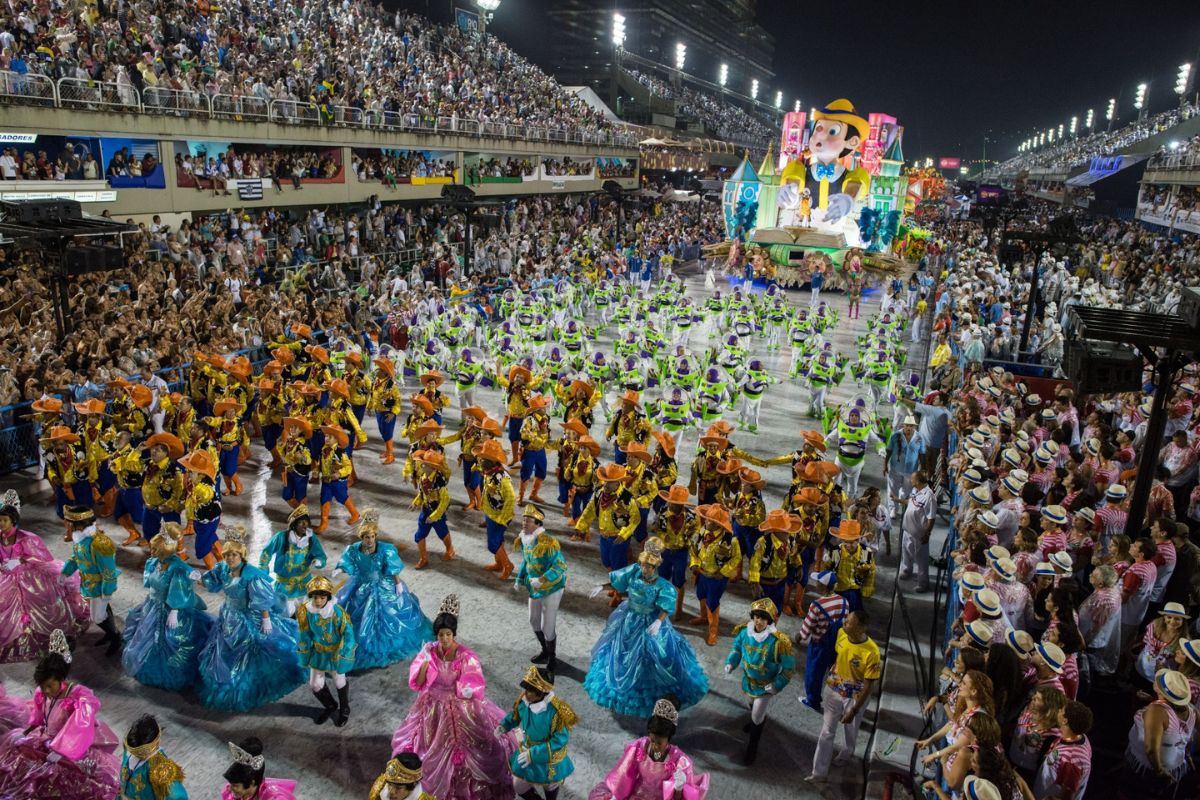
Brazil’s Carnival is a global spectacle, a vibrant tapestry of music, dance, and revelry that captivates the world with its infectious energy and cultural richness. While Rio de Janeiro’s Carnival is the most renowned, the country’s vast and diverse landscape boasts a multitude of unique Carnival celebrations, each with its own distinctive character and flavor. Embark on a journey from the iconic parades of Rio to the Afro-centric rhythms of Salvador, and discover the kaleidoscope of Carnival experiences that Brazil has to offer.
Rio de Janeiro: The grand spectacle of samba
Rio de Janeiro’s Carnival is arguably the most famous in the world, known for its extravagant parades, lavish costumes, and infectious samba rhythms. The city’s Sambadrome, a purpose-built stadium, plays host to the main parades, where samba schools compete for the coveted title of Carnival champion. These schools spend months planning and rehearsing their elaborate performances, which feature hundreds of dancers, elaborate floats, and dazzling costumes.
Rio de Janeiro’s Carnival, held in the iconic Sambadrome, is the pinnacle of Carnival extravagance. Samba schools, meticulously prepared for months, showcase their elaborate costumes, synchronized dance routines, and pulsating samba rhythms, vying for the coveted title of Carnival champion. The Sambadrome transforms into a mesmerizing spectacle of colors, sounds, and movement, enthralling both performers and spectators alike.
Beyond the Sambadrome, the streets of Rio come alive with over 500 blocos, and impromptu street parties that take over every corner of the city. These blocos embody the spirit of Carnival’s inclusivity and participatory nature, where everyone joins in the revelry, dancing to the infectious beats of samba, funk, and other popular Brazilian genres.
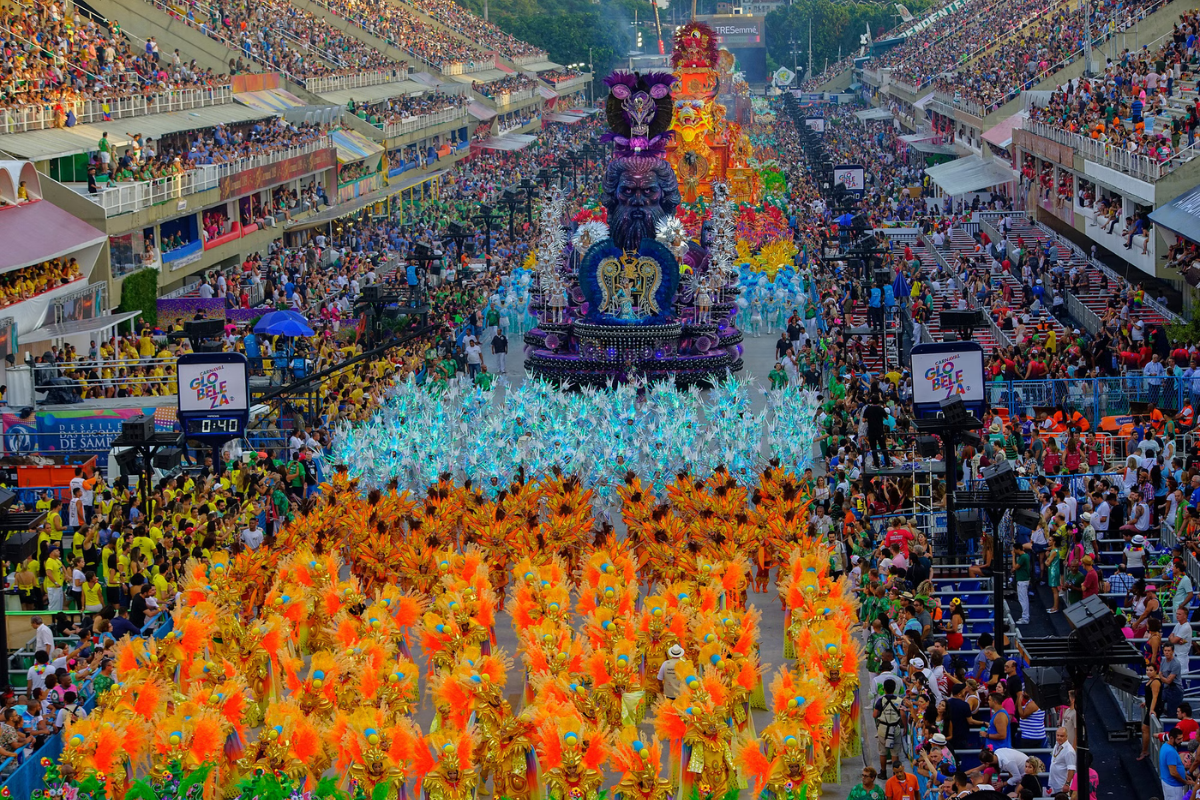
Photo: Photo Enrichment Adventures
Salvador de Bahia: The Afro-Brazilian rhythms of carnival
Salvador de Bahia is another major Carnival destination in Brazil, and its Carnival is known for its vibrant Afro-Brazilian influences. The city’s Carnival is centered around the “blocos afros,” street parties that feature traditional African rhythms, such as candomblé and afoxé. The blocos afros are known for their colorful costumes, energetic dancing, and infectious music.
Salvador de Bahia, the cradle of Afro-Brazilian culture, hosts a Carnival that pulsates to vibrant rhythms and a mix of Afro-centric genres. The city’s Carnival centers around the blocos afros, where percussion instruments, traditional costumes, and energetic dance moves create an electrifying atmosphere.
The trios elétricos, massive trucks equipped with powerful sound systems, take center stage, blasting out axé, samba, and other popular Brazilian music. These trios elétricos weave through the streets, followed by throngs of revelers who dance and sing along, creating a contagious wave of energy that sweeps through the city.
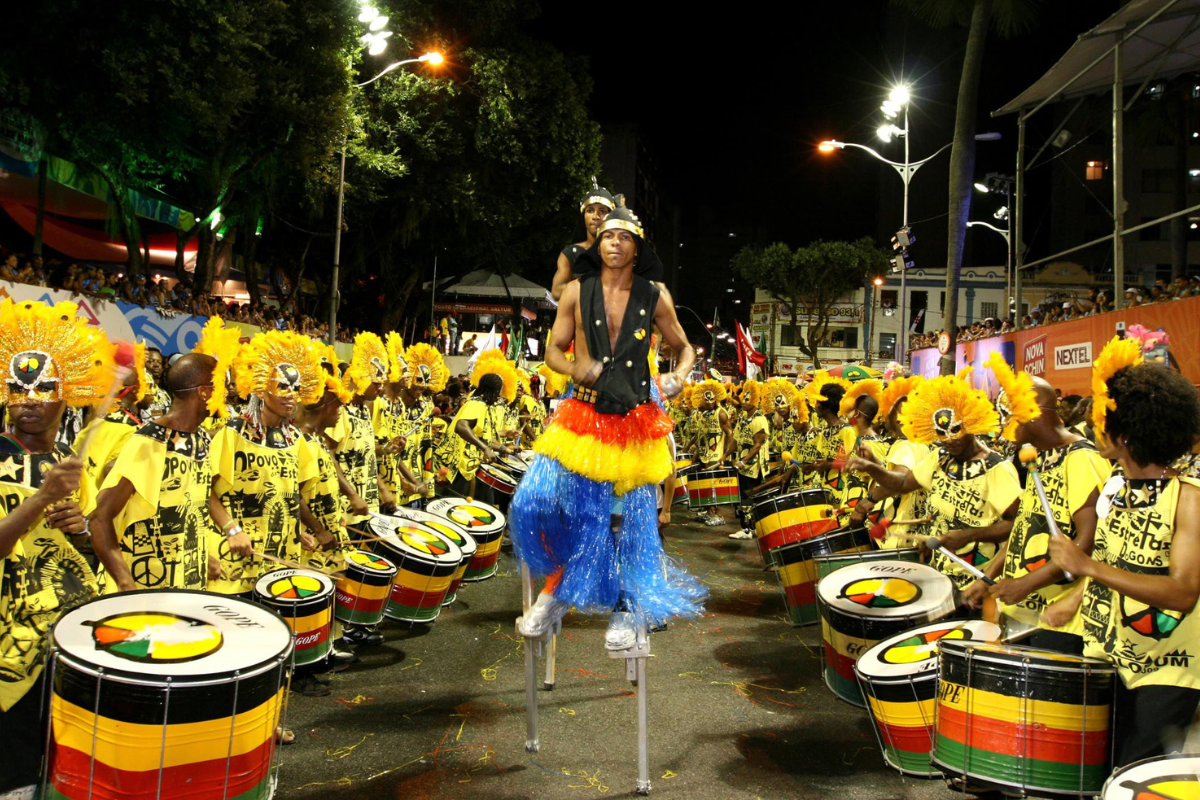
Olinda: A colonial charm meets carnival spirit
Olinda, a small colonial town near Recife, is known for its more intimate and traditional Carnival celebrations. The streets of Olinda are filled with colorful floats, marching bands, and street performers, and the atmosphere is one of joy and revelry. The streets transform into a vibrant stage, filled with colorful floats, marching bands, and street performers.
Olinda’s Carnival is a celebration of local culture, where traditional rhythms like frevo and maracatu interweave with contemporary sounds, creating a unique musical tapestry. The streets pulsate with a sense of community and camaraderie, as locals and visitors alike embrace the spirit of Carnival.
One of the unique features of Olinda’s Carnival is the tradition of “troça-troça,” or playful teasing. Participants in the troça-troça throw water and cornstarch at each other, and the streets are filled with laughter and good cheer.
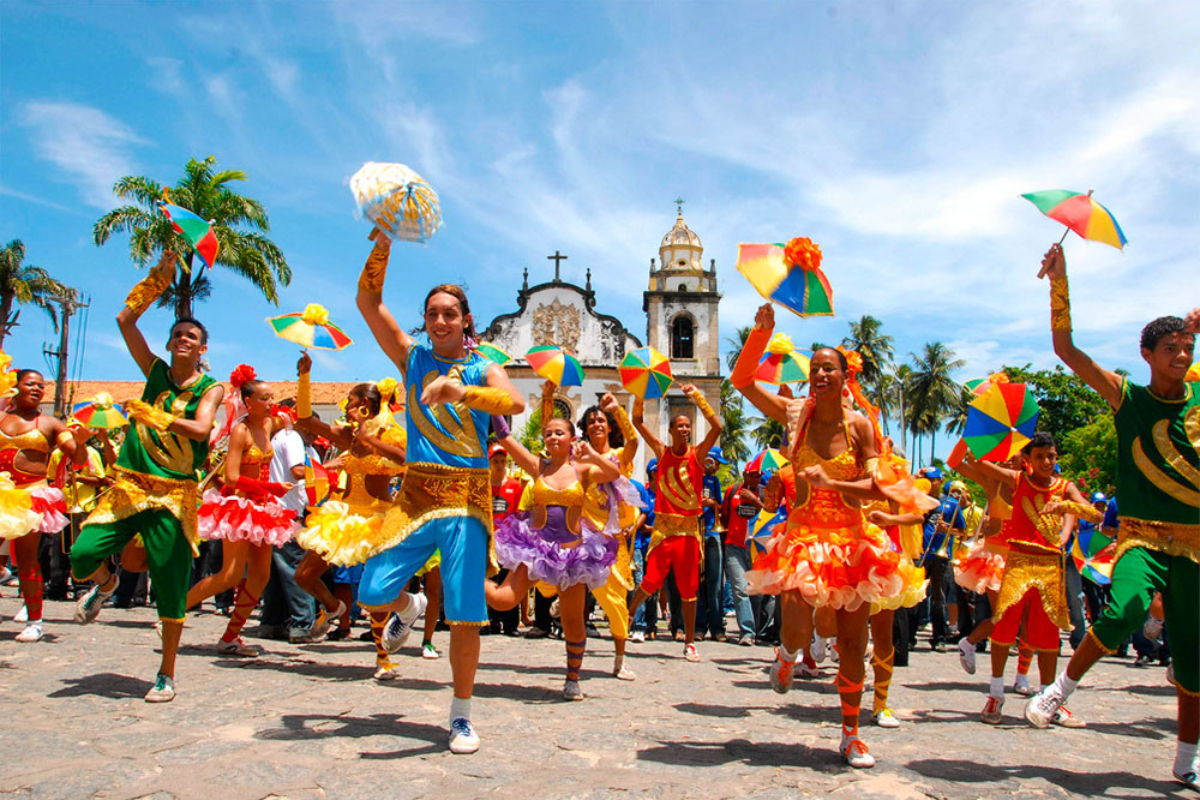
Photo: Vida De Turista
Recife: Frevo and Bonecos Gigantes
Recife, the capital of the state of Pernambuco, is another major Carnival destination in Brazil. The city’s Carnival is known for its lively street parties, known as “galos.” These galos feature a mix of traditional Brazilian music, such as frevo and maracatu, as well as more contemporary sounds.
Recife’s Carnival is characterized by the lively frevo rhythm, a fast-paced dance step that sets the tone for the city’s celebrations. The galos, street parties featuring frevo and other traditional Brazilian music, transform into vibrant hubs of energy and dance.
The bonecos gigantes, towering puppets up to 30 feet tall, add a touch of whimsy and grandeur to Recife’s Carnival. These puppets, carried through the streets by teams of dancers, are a symbol of the city’s cultural heritage and pride.
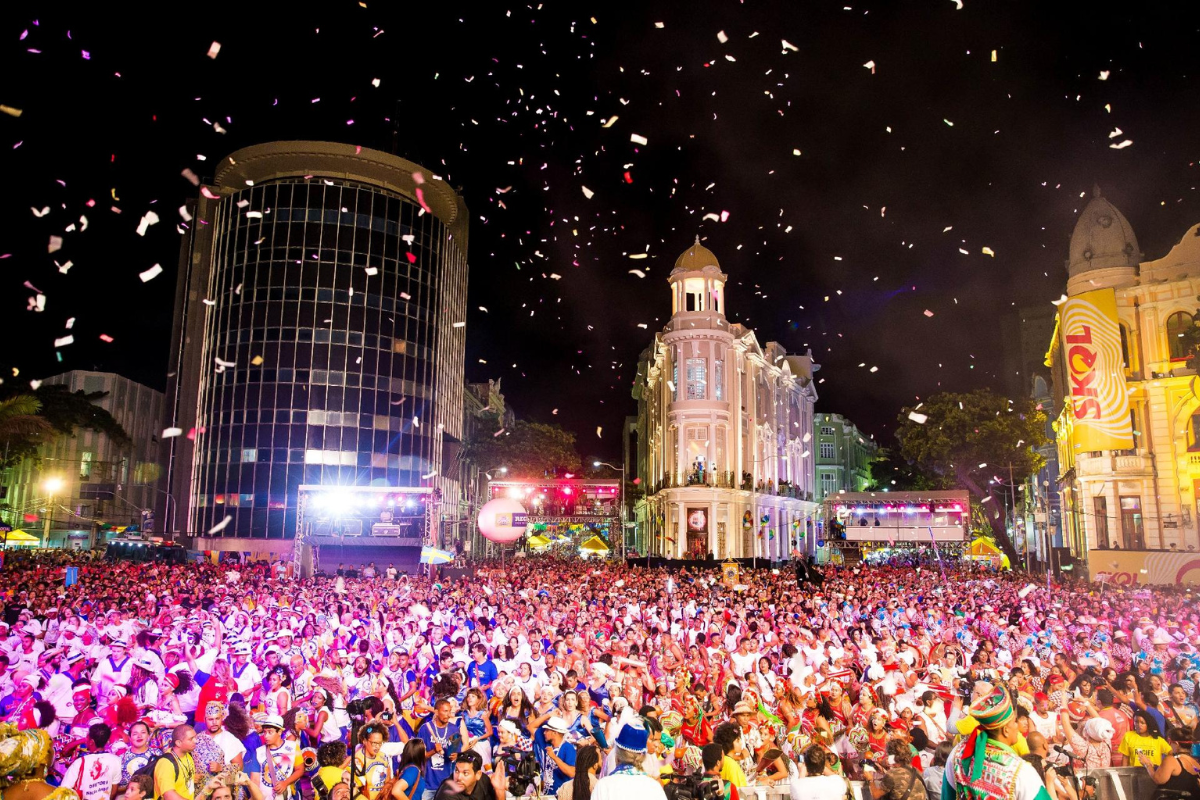
Photo: Maior Viagem
Brazil’s Carnival is a testament to the country’s rich cultural heritage, a mosaic of diverse traditions that come together to create a vibrant celebration of life, music, and dance. From the iconic parades of Rio to the Afro-centric rhythms of Salvador, and the traditional charm of Olinda to the frevo-infused energy of Recife, each region offers a unique Carnival experience that captures the essence of Brazil’s cultural soul. Whether you seek the grand spectacle of Rio or the intimate charm of Olinda, Brazil’s Carnival invites you to immerse yourself in its vibrant tapestry of colors, rhythms, and revelry, a celebration that epitomizes the country’s infectious zest for life.

